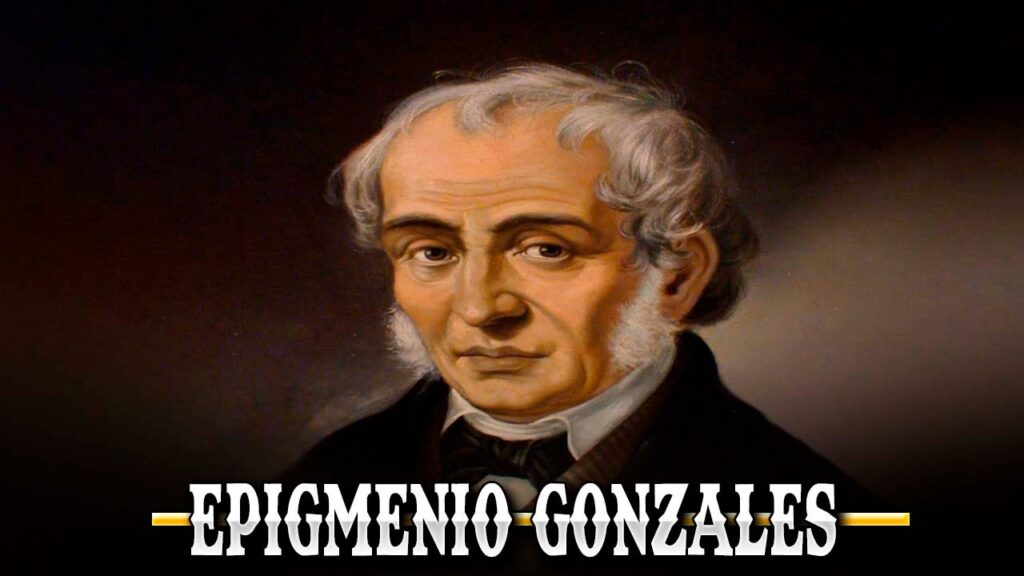The Enigmatic Tale of Epigmenio González
Mexico’s rich history is peppered with the stories of heroes and rebels, and among those, the tale of Epigmenio González stands tall. An intriguing figure of the Mexican War of Independence, González was not only a pioneer in the struggle against Spanish rule but also a symbol of enduring mystery and inspiration. Born in the early 18th century, his life was a tapestry of clandestine activities and fervent patriotism, which left an indelible mark on the fabric of Mexican history.
Epigmenio González’s journey into the annals of legend began with his role in the conspiracy of Querétaro, a pivotal event leading up to the outbreak of the independence war in 1810. As a purveyor of weapons and ammunition to the insurgent forces, González’s silent yet vital contributions were crucial in equipping the rebels with the means to rise against the colonial power. It was his brave act of storing a cache of arms in his own home that ultimately led to his arrest and imprisonment, cementing his status as a martyr for the cause of liberation.
During his incarceration, the resilience of Epigmenio González became a beacon of hope for his compatriots. Despite enduring years of hardship in jail, his spirit remained unbroken, and his commitment to the freedom of Mexico never wavered. His unwavering stance not only fortified the resolve of the insurgents but also galvanized the support of the common people, who saw in him the embodiment of the undying quest for independence.
The legend of Epigmenio González extends beyond his direct involvement in the insurrection. Tales of his courage and fortitude have been passed down through generations, fueling the spirit of rebellion and the pursuit of justice in the subsequent epochs of Mexican history. Even today, Gonzalez’s name is invoked as a symbol of the unrelenting fight against oppression, serving as a testament to the power of individual bravery in shaping the destiny of a nation.
Epigmenio González: A Poet Lost in the Shadows of History
Mexico’s tapestry of historical figures includes warriors, political leaders, and revolutionaries, often overshadowing the more delicate threads woven by its artists and thinkers. One such figure is Epigmenio González, a poet whose works are scarcely remembered today. Born in the waning days of the Spanish colonial rule, González’s contributions to Mexican literature are marked by his impassioned calls for independence and social justice, reflecting the tumultuous era he inhabited.
González’s poetry was infused with the spirit of Mexican identity and pride. His verses, often composed amidst the backdrop of political upheaval and civil unrest, echo with the yearning for a free and sovereign nation. Despite this, González’s name rarely appears alongside the canonical giants of Mexican literature. His voice, it seems, has been muted by the ensuing centuries, a faint whisper in the grand narrative of Mexico’s fight for independence.
The scarcity of González’s surviving works presents a challenge for historians and literary scholars. Only a handful of his poems remain accessible to the public, many of which exist only in arcane anthologies or private collections. This rarity has relegated him to the footnotes of Mexican literary history, leaving enthusiasts and patriots to wonder about the full extent of his influence and the true depth of his poetic wealth.
In villages and old libraries across Mexico, there lies the tantalizing possibility of uncovering lost manuscripts of González. These elusive documents, if found, could shine a light on the enigmatic character of this forgotten poet. Researchers and locals alike hold onto hope that somewhere, in a dust-covered corner of a historic archive or a family’s inherited possessions, new verses from González await to be rediscovered and celebrated.
As Mexico continues to evolve, growing in its complex and vibrant cultural identity, there is a profound sense of duty among the intellectual community to resurrect the legacy of figures like Epigmenio González. In the face of modern challenges, the sentiments of unity and liberty that once imbued his poetry maintain their relevance, inspiring a new generation to explore the rich and, occasionally, obscured heritage of Mexican literature.
The Tragic Story of Epigmenio González and Mexico’s Fight for Independence
The struggle for Mexican independence from Spanish colonial rule is a tapestry of heroic tales and tragic stories. Among these is the story of Epigmenio González, a name that echoes with bravery and sacrifice in the annals of Mexican history. Born in Querétaro, González was an active participant in the early conspiracies that set the stage for Mexico’s fight for freedom. A passionate idealist, he firmly believed in a nation free from foreign domination and was willing to risk everything for the dream of independence.
Before becoming a renowned figure in the independence movement, Epigmenio González forged a life as a local blacksmith. However, his skills with metal would soon translate into a clandestine activity that would mark him in history: the manufacturing of weapons for the insurgents. His workshop became a secret hub for the rebellion, as swords, muskets, and cannons were quietly crafted to arm those who were willing to rise against Spanish rule. It was a dangerous gamble, and the stakes were life itself.
In 1810, González’s covert operations were exposed, leading to his arrest and severe repercussions by the colonial authorities. Charged with insurgency, he faced the wrath of the Spanish Crown, enduring imprisonment and torture. Despite the personal cost, his spirit remained unbroken; his dedication to the cause was resolute. Epigmenio González’s plight represents the countless unseen sacrifices made by those who believed in the imperative of liberty and justice.
While some names like Miguel Hidalgo and Ignacio Allende often dominate the narratives of the independence saga, it is crucial to remember figures like Epigmenio González. His tragic ordeal reminds us of the ominous shadow that accompanies every fight for self-determination. Subjected to the horrors of incarceration, he spent years in the dungeon of the Hospital of San Juan de Dios in Guadalajara, suffering for the very freedoms that the future Mexico would cherish.
The resilience ingrained in González’s story inspired many who continued the struggle for independence. After a decade of relentless battles and social upheaval, Mexico finally achieved sovereignty in 1821. While Epigmenio González did not live to see the fruition of his endeavors, his legacy endured. He became a symbol of the undying hope that fueled a nation’s quest for sovereignty, an eternal reminder that from great sacrifice can emerge a new dawn.
Unveiling the Legacy of Epigmenio González: Mexico’s Forgotten Patriot
Hidden within the intricate tapestry of Mexico’s vibrant history lies the tale of Epigmenio González, a figure whose contributions to the nation’s fight for independence often slip through the cracks of mainstream narratives. Born in a modest town, this fervent patriot found his calling amidst the tumultuous times that marked the late 18th and early 19th centuries. González’s legacy, while overshadowed by the likes of Hidalgo and Morelos, is an inspiring chronicle of sacrifice and determination in the pursuit of liberty.
González was not a man of wealth or military might, but his role in the struggle for independence was no less significant. A staunch advocate for freedom, he used his skills as a blacksmith to aid the insurgent cause, crafting weapons in secret and providing impassioned speeches to rally those who shared his vision for a sovereign Mexico. His clandestine activities eventually led to his arrest and imprisonment, an event that only strengthened his resolve. The stories of his unyielding spirit behind bars are a testament to the enduring spirit of those fighting oppression.
Today, the tales of his endeavors live on in the whispers of the past, reminding us of the unsung heroes who played pivotal roles in shaping Mexico’s destiny. It is through the acknowledgment of figures like Epigmenio González that we gain a fuller understanding of the sacrifices made in the name of freedom. As we traverse the country’s storied landscapes, we are walking in the footsteps of patriots who, like González, laid the foundation for the Mexico we know today. Their legacy survives not just in monuments and history books, but in the spirit of a nation that cherishes its hard-won sovereignty.
From Poet to Revolutionary: The Life of Epigmenio González
Epigmenio González’s journey from a humble poet to a fervent revolutionary is a captivating story that weaves through the rich tapestry of Mexico’s history. Born in the late 18th century in a Mexico still under Spanish rule, González’s early life was characterized by the exploration of literature and the arts, where he found himself deeply entrenched in the development of his poetic voice. His early works, infused with motifs of freedom and equality, subtly hinted at the revolutionary spirit brewing within his soul.
Despite his initial foray into the arts, it was the political climate of the era that truly awakened González’s call to action. As the winds of change brought forth the Mexican War of Independence, his poetry began to reflect a more direct and passionate plea for his country’s liberation from colonial oppression. Heavily influenced by the Enlightenment thinkers and the successful revolutions of other nations, González’s verses became powerful rallying cries for those who dreamt of an independent Mexico.
González’s transition from a poet to a revolutionary was marked by his active involvement in the insurgency. He quickly ascended to a leadership role, leveraging his skills as a wordsmith to inspire and mobilize his compatriots. González’s dedication to the cause transcended mere participation, as he became a strategic figure in the planning and execution of key revolutionary acts. His ability to connect with the common people through his words made him an invaluable asset to the movement.
Throughout the war, Epigmenio González faced numerous hardships and even endured imprisonment for his relentless pursuit of freedom. His time behind bars did not dampen his spirit; instead, it served to further solidify his resolve to see his nation break away from the fetters of Spanish rule. Inside his cell, he composed some of his most poignant and resonant poetry, which continued to circulate and inspire his fellow revolutionaries.
In the aftermath of the struggle and the hard-won independence of Mexico, González’s legacy as a poet-revolutionary was cemented in the country’s history. His life’s work and unwavering commitment to his beliefs left an indelible mark on Mexican society and culture. The story of Epigmenio González is not only a testament to the power of words in shaping political ideologies but also a chronicle of the inexorable human desire for freedom and self-determination.
How Epigmenio González Almost Became a Father of the Mexican Nation
The tale of Epigmenio González is woven deeply into the tapestry of Mexico’s tumultuous history. A figure shrouded in both mystery and valor, González played a pivotal role during the early stages of the Mexican War of Independence. It was his covert operations in Querétaro – a city renowned for its beauty and cultural significance – that positioned him as a contender for the title of the nation’s forefather. His legacy, though less celebrated than that of figures like Miguel Hidalgo or José María Morelos, is no less important to the birth of an independent Mexico.
Operating from the shadows, González organized one of the first conspiracies against the Spanish Crown. With the stroke of each smuggled correspondence and the clink of sabers in clandestine meetings, González helped to fan the flames of insurrection. His home became a veritable nerve center of revolutionary planning, where he amassed weapons and orchestrated the uprising. This act of defiance, perilous and brazen, was a stone-throw away from sparking the conflict that would eventually lead Mexico to freedom.
However, despite his instrumental role, González’s name narrowly missed being etched alongside the “Fathers of the Mexican Nation.” His fate, marked by an untimely capture, led to a premature end to his active involvement in the war. Imprisonment could not stifle his revolutionary spirit, and from the confines of his cell, he continued to inspire the revolutionaries. González’s legacy, while not emblazoned in every history book, remains a testament to the unyielding spirit of the Mexican people and the unsung heroes of their independence.



